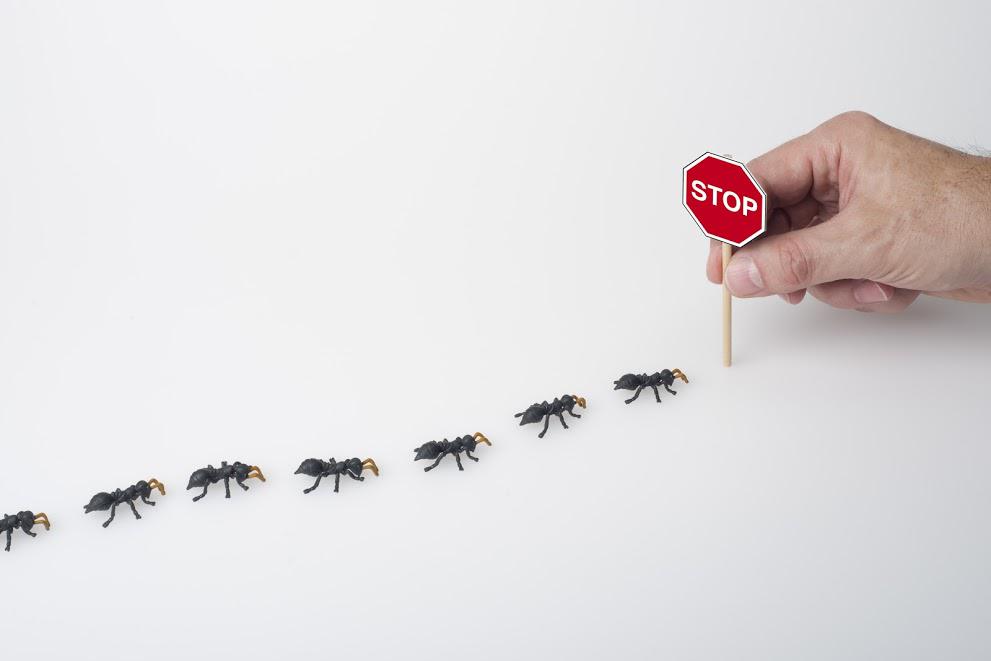
Does your home have a Tapinoma sessile invasion? More commonly known as the odorous house ant, this pest is a problem you don’t have to live with. Take a look at the answers to the top questions homeowners have about odorous ants.
What Are Odorous House Ants?
These common household invaders are found across the United States. According to the National Pest Management Association’s PestWorld website, these ants are typically between 1/16 and 1/8-inch long and are a brown or black color. Even though the majority of these ants are unwinged, reproductive odorous ants do have wings. These winged ants typically appear in the summer (May to July).
Odorous ants live in large colonies that can include hundreds to thousands of workers and several queens. Like many other pests, these ants nest in warm, moist spaces when they invade a home.
Why Are These Ants Called Odorous?
As the name implies, these ants give off an odor. While the ants typically don’t smell as they crawl through and scavenge your home, they will give off a characteristic rotten scent if crushed. Some homeowners describe the smell as a rotten coconut or odd pine type of odor.
Where Can You Find These Ants?
Odorous ants enjoy moisture and warmth. This means you may find the invaders near a leaky pipe or in the walls, bathroom, or kitchen. Outdoors, the ants may nest near your home’s exposed water pipes, in soil, or in woody areas.
What Do Odorous Ants Eat?
Odorous ants don’t only invade to find moisture and warmth. These ants also come into the home in search of food. And even though the ants don’t smell sweet scents, they favor sweet foods, particularly honeydew, the byproduct of aphids and other plant sucking bugs. However, while honeydew is a favorite feast for these ants, they may eat any other sugary food they can reach.
Are Odorous Ants a Safety Hazard?
Even though these pests are problematic, they don’t pose a true safety risk. Unlike some other pests, such as mosquitoes and ticks, odorous ants don’t transmit disease. While the ants aren’t a direct disease vector, they are an indirect vector of pathogens and bacteria through their travels around your home. They will trail into your garbage can and then across your counter carrying all that bacteria and pathogens from the garbage onto the counter where you will make your food tomorrow. In addition, they can get into and contaminate food in your household. This makes it essential to eliminate the invaders as soon as possible.
How Can You Eliminate Odorous Ants?
Given the size of the ant colonies, complete elimination is a challenge — especially for a homeowner with little to no extermination experience.
Along with the size of the colonies, these ants move their nests often. In as little as three weeks, the colony can pick up and travel to another location. The portability of the colony may make a strategic extermination strike difficult.
While a do-it-yourself approach may seem like a money-saving idea, it can pose a safety risk in your home or fail to completely eliminate the invasion. Chemicals, poisons, and baits are best used by the pest control professional.
If you suspect your home has an odorous ant invasion, contact a licensed exterminator. The pest control professional can inspect your home, find the nests, and recommend a treatment plan. This may include both indoor and outdoor treatment.
How Can You Prevent an Ant Reinfestation?
After the exterminator eliminates the odorous ants, you’ll need to prevent a reinfestation. A one-time treatment approach won’t stop these invaders from coming back or a new colony from invading. To prevent a potential reinfestation, trim trees and shrubs away from your home, fill cracks or holes in exterior walls, place food in airtight containers, repair leaky pipes, and clean infestation areas well.
Along with these preventative steps, schedule routine professional pest control maintenance. Even though you may not see ants, the pest control technician can provide prevention services to stop an invasion before it starts and keep odorous ants away from your home.
Do you need ant control? Contact A-Alert Exterminator Service, Inc., for more information.


